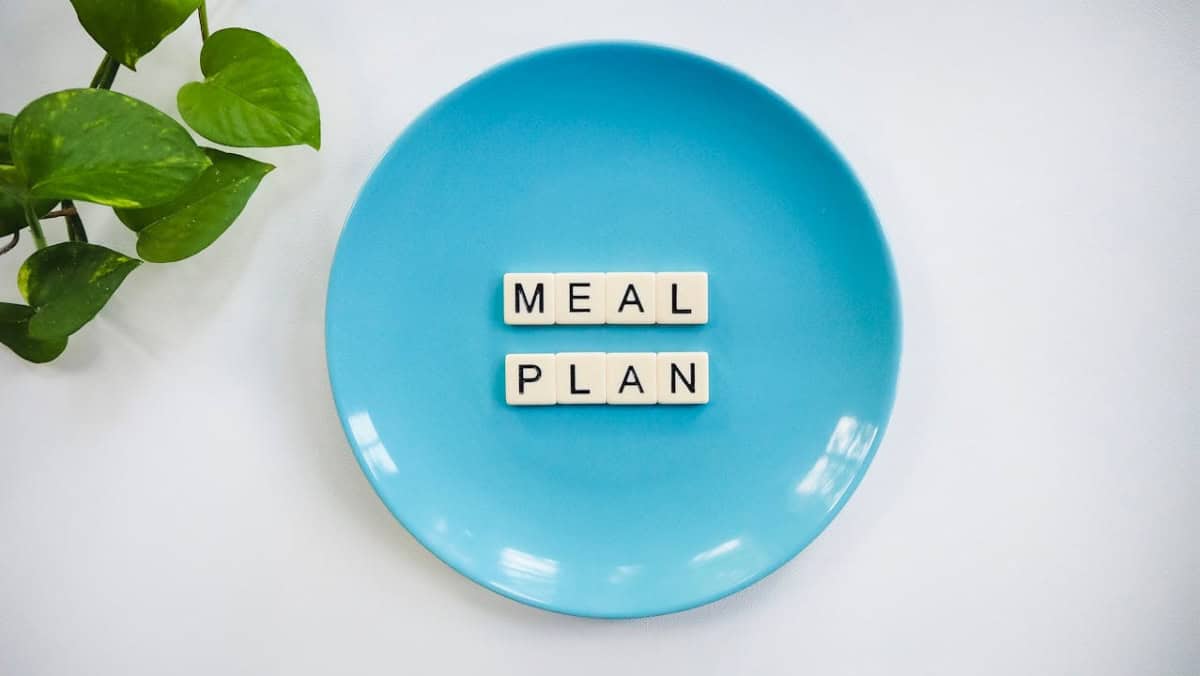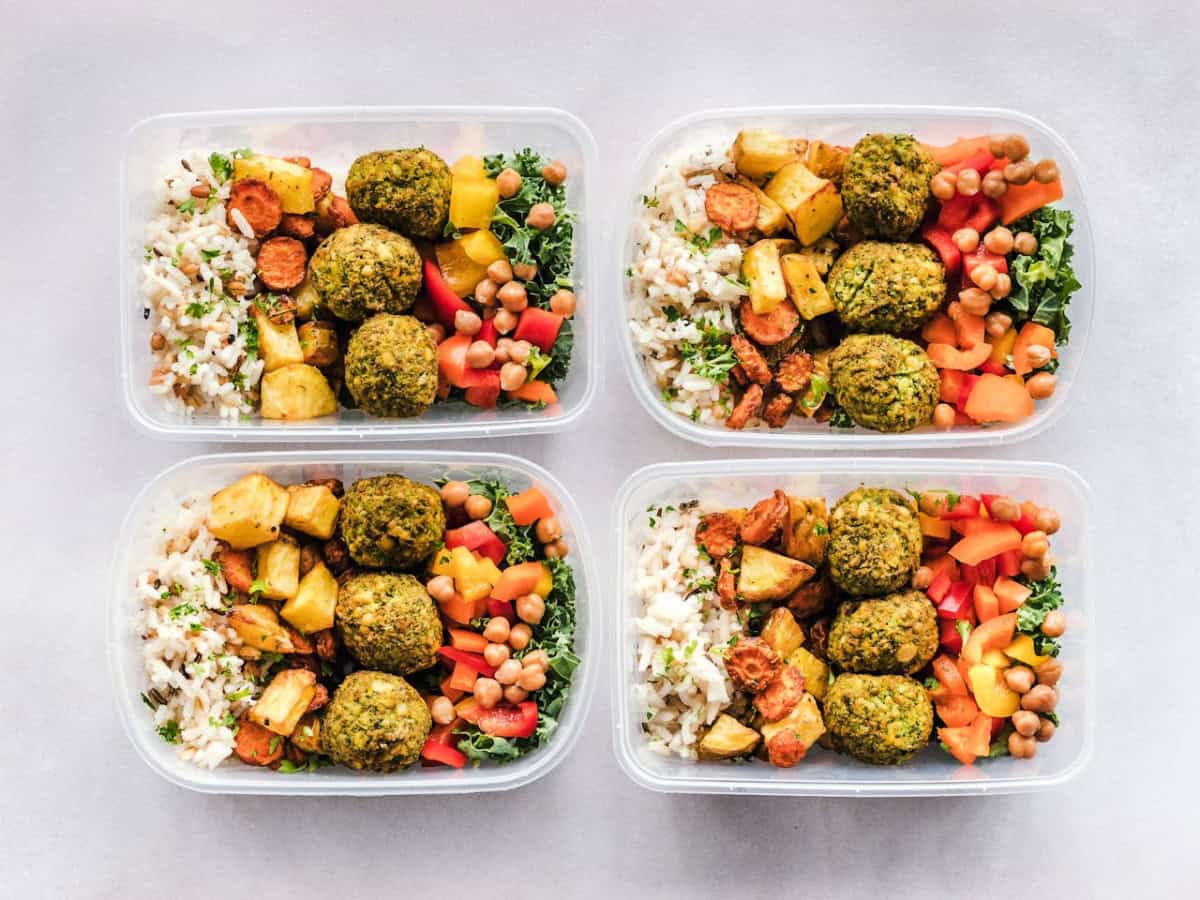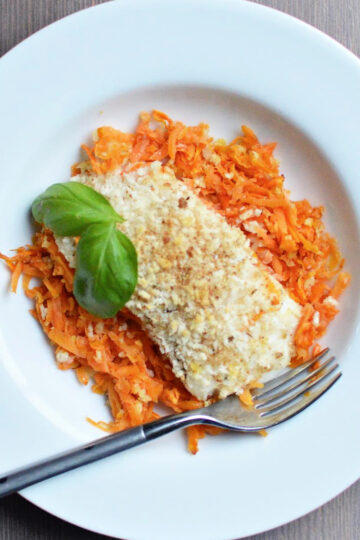Having a balanced diet and eating well is not only about buying healthy food, and these ADHD Meal Planning Tips will make life a lot easier for those trying to maintain a healthy routine with ADHD. It also requires proper planning, time-management skills, and consistency. This is one of the reasons why individuals with attention deficit hyperactivity disorder (ADHD) often find it challenging to organize and prepare well-balanced meals systematically.

Eating Well With ADHD Meal Planning Tips
However, having a meal prep plan that contains necessary nutrients and contributes to a healthy daily routine can also help manage ADHD symptoms. Let’s explore why ADHD can cause struggles with meal planning and how to tackle them.
Why Is Meal Planning Hard With ADHD?
On the surface, consistent meal preparation may look like a simple and easy task. However, some factors make it harder for individuals with ADHD to create a meal plan and stick to it, for example:
- Executive function challenges: Impaired executive functioning is among the key symptoms of ADHD. It affects cognitive processes such as prioritization, organization, planning, task initiation, time management, working memory, problem-solving, attention, and self-control. These challenges can make it difficult to organize and plan meals, follow the recipe, remember the ingredients, and allocate time for grocery and meal prep.
- Impulse control challenges: Another common ADHD symptom is poor impulse control leading to more frequent impulsive decisions. A person can often purchase less healthy and more convenient food (takeout meals, instant foods, frozen options, etc.) rather than sticking to a planned list of groceries and meals.
- Inattention and distractibility: Individuals with ADHD tend to get distracted by their surroundings or intrusive thoughts more easily. As meal prep and cooking require focus, these symptoms can disrupt the process. One might forget to buy some items, skip or change ingredients, or start another task leaving meal prep halfway.
- Sensory stimulation: ADHD can result in sensory overload. This sensitivity may cause them to feel overwhelmed by the noises and smells in the kitchen as well as the necessity to multitask while cooking. Certain food textures and tastes may also contribute to sensory sensitivities, so choosing healthy food options becomes limited or challenging. To avoid it, they can avoid cooking altogether.
- No proper routine: Establishing and maintaining routines daily is difficult for individuals with ADHD. Because of a lack of organization, they can skip meals, have irregular meal patterns, and consume unhealthy snacks too often. The thought of being unable to stick to a routine may induce anxiety and stress, further disrupting meal preps.

Benefits of Meal Planning
Meal planning has a lot of benefits for everyone, but for people with ADHD, it can also be one of the lifestyle changes necessary for managing symptoms better. Some of the benefits are the following:
- You consume well-balanced meals that have the right amounts of nutrients, which are important for your physical and mental health.
- Regular and well-organized food intake and appropriate food choices can stabilize mood and energy levels.
- Knowing what to eat, when to eat, and how to make meals creates predictability and takes out the element of daily stress.
- You can cut down on impulse purchases like fast food and ultimately save money.
- You can also manage your time better by following a routine related to shopping and meal prep.
- You get more mindful about your food choices and smaller portion sizes, minimizing food waste.
- You can maintain a healthy weight long term avoiding overeating/undereating and the downside effects of it on ADHD.

9 Strategies for Making Meal Planning Easier
Following are some of the strategies that can help individuals with ADHD to make meal planning easier:
- Keep it simple: Easy meals can be a game-changer for adults with ADHD. Starting with simple, basic recipes with minimum ingredients and cleanup helps to make it a habit faster. You can gradually increase the complexity of recipes and grocery planning with time as you get comfortable. Make it a fun activity rather than a choir!
- Plan on a weekly basis: Take some time on weekends to plan the menu, meals, and a grocery shopping list for the coming week.
- Prepare batch and freeze: Prepare foods that can be frozen for longer times and divide them into storage packages as per serving size. You can then take it out on tiring days and save the time and hassle of cooking from scratch.
- Use visual aids: Buy or print out a cute meal planning chart to note down your meals and keep track of them. You can put this calendar on your refrigerator or any other place you see fit.
- Use technology aids: Various apps and websites can help you plan your meals, provide easy recipes, build a shopping list for you, save your meal schedule, and set reminders.
- Prepare a basic grocery list: Curate a detailed grocery list based on the possible meals. A basic list includes the following categories: meat, fish, eggs, dairy products, vegetables, fruits, and whole grains. However, it can be modified according to your health needs and preferences.
- Maintain a well-stocked pantry: Make sure you have all the basic yet versatile staples in your pantry to whip up quick and healthy meals and snacks. These can be items like canned beans, chickpeas, corn, pasta, some pre-cut vegetables, necessary spices, etc.
- Involve your close ones: If you live with your family or significant other, discuss and divide the meal planning and prepping process with them. If there is something you find overwhelming and they can do it, then it’s a win-win. This collaborative effort can help lessen the workload and it can be a fun group activity.
- Use efficient cooking utensils: Different utensils lessen the time and effort it takes to cook a few meals, such as instant pots, rice cookers, pressure cookers, slow cookers, etc.

Overview of an ADHD Diet
A balanced diet not only provides nutritional value but also leads to healthier physical health and mental health. Specific dietary approaches can also help manage ADHD symptoms.
Best Foods for ADHD
| Nutrient | Food Sources | Benefit |
| Omega-3 fatty acids | Salmon, walnuts, flaxseeds, chia seeds, fish oil supplements. | Reduced hyperactivity and improved cognitive function. |
| Protein | Chicken, turkey, fish, eggs, nuts, dairy products, beans. | Improved concentration, focus, and overall brain function. |
| Fiber | Whole grains, vegetables, fruits, legumes. | Prevent energy spikes and crashes by providing sustained energy levels to improve concentration. |
| Zinc, iron, copper, selenium, and magnesium | Leafy green vegetables e.g. kale and spinach, oranges, berries, nuts, seeds | Support cognitive function and overall brain health. |
Foods to Avoid or Limit
| Food Sources | Effects | |
| Caffeine | Coffee, tea, energy drinks, and caffeinated sodas | Can lead to restlessness, disturbed sleep, and anxiety. |
| Excessive sugar | Candies, pastries, sodas, and sweetened cereals. | Increased impulsivity and hyperactivity. |
| Artificial additives | Artificial flavors, colors, and preservatives. | Increased inattention and hyperactivity. |
| Processed foods | Fast food, packaged snacks, and instant meals | Can negatively impact cognition and behavior. |
Examples of ADHD-friendly Meals
Some meal ideas that can be easy to prepare for individuals with ADHD yet have nutrient value include:
Breakfast
- Overnight oats or granola
- Greek yogurt with berries and nuts
- Avocado toast with egg
- Smoothie bowl
- Chia seed pudding with almonds
- Egg muffins with cheese
- Whole grain bread with peanut butter
- Fruit and nut breakfast bars
- Quinoa breakfast bowl with fruits
- Scrambled eggs with spinach and tomatoes
Lunch and Dinner
- Chicken salad with green vegetables
- Quinoa and bean salad
- Turkey and corn wrap
- Vegetable stir-fry with rice
- Hummus and vegetable wrap
- Baked salmon with steamed vegetables
- Chicken stir-fry with bell peppers and peas
- Chicken meatballs with spaghetti or pasta
- One-pan chicken with roasted vegetables
Conclusion
Strategically planning your meals can help both ensure proper nutrition and help manage ADHD symptoms. However, in turn, ADHD can pose challenges to meal planning and cooking, so implementing the practical strategies discussed in this article can be helpful. Explore different ways to make meal planning more effective and choose the ones that suit you best. If ADHD symptoms become severe and make it too hard to maintain proper meals, consider seeking professional mental health help. These activities may be anxiety-soothing and may help your life feel more complete and wholesome as well!





Leave a Reply